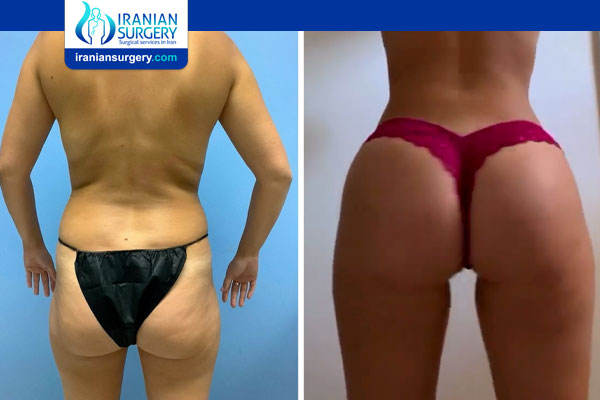Infection After BBL
How common is infection after bbl?
All surgical procedures, including the Brazilian Butt Lift, have potential risks, and the thought of getting an infection after surgery can be a scary and dreadful thought. While infections are a known complication that can come along with surgery, and many infections that occur can be easily treated.
There are a variety of things the patient can and should do to put themselves in the best position possible to avoid the occurrence of an infection after surgery. Below are some suggestions for preventative steps patients can take to avoid infections.
Read more about : 10 Years after bbl
Read more about : Bbl in Iran before and after
Read more about : What Happens if BBL Goes Wrong?
Signs of an Infections After BBL
Going into your surgery recovery, it is important to read your care instructions very carefully and to be well-versed on the telltale signs of an infections after surgery. Even when you take all of the right steps to prevent an infection, factors beyond your control may cause one to develop. Microorganisms like bacteria may infiltrate the wound, multiply and damage your skin’s tissues, which can cause illness and delay the healing process. If you notice any of the following signs, call your doctor as soon as possible for infected wound treatment:
Feelings of Malaise
Malaise is a feeling of tiredness and a lack of energy and is a common non-specific sign of a localized systemic infection. You may not feel up to completing normal activities or begin sleeping more than usual. While this type of feeling is normal during surgical recovery, there is a big difference from what is typical and what is a sign of infection. People who are recovering from surgery without an infection feel a little better day by day. Those recovering from surgery who contract an infection might feel good and then suddenly become exhausted.
Running a Fever
Running a fever can cause headaches and decrease your appetite. Running a low-grade fever of 100 degrees Fahrenheit or less is normal following surgery. However, if your temperature reaches 101 degrees or more, it may be indicative of a wound infection. If this happens, consult your surgeon or physician immediately.
Fluid Drainage
It is very normal to have some fluid drainage from the incision area after surgery and even encouraged for optimal results. Expect clear or slightly yellow-colored fluid to drain from your wound. However, if the drainage fluid is cloudy, green, or foul smelling, this could be a sign that the wound is infected. In this case, you should reach out to your doctor to determine the proper next steps to take.
Increased Pain
While pain is common after surgery, it should gradually subside as your body heals. Pain medication can help, but you should be able to stop taking medications comfortably over time. To prevent unwarranted pain, follow your doctor’s wound care directions and avoid strenuous activities. If you continue to experience pain or suddenly have increased pain, it may be a sign of infection, and you should consult with your surgeon or physician.
Redness and Swelling
Some redness is normal at the wound site, but it should diminish over time. However, if your surgical incision or wound continues to be red or exhibit radiating streaks, this is a warning sign of a wound infection. Like redness, some swelling is to be expected at the wound site and should decrease over time. But if the swelling does not go down during the initial phases of the wound healing process, you could have an infection.
Hot Incision Area
When an infection develops in a wound or incision, the body sends infection-fighting blood cells to the location. This may make your wound or incision feel warm to the touch. If the hot temperatures continue, the infection may cause you to develop other infection symptoms and should be treated by your doctor.
Prevent Infection After BBL
Use an Antibacterial Soap Before Surgery
Before coming to the clinic where you will be having your procedure, doctors strongly enforce that patients shower with an antibacterial soap containing chlorhexidine. Dial soap is a great, low-cost example of this. Chlorhexidine is a disinfectant and antiseptic that is used for skin disinfection before surgery and to sterilize surgical instruments. The skin is the largest barrier on our bodies that prevents us from getting into contact with harmful bacteria and substances that can lead to infections. By making sure to disinfect the skin ahead of surgery, you can decrease the likelihood of an infection occurring once the skin is opened during surgery.
Keep your Incisions Clean and Dry
During a Brazilian butt lift (BBL) specifically, wounds are left opened to allow fluid drainage. While this helps create the best results possible, open wounds are more prone to infection than closed wounds. Because of this, it is important you take extra care to keep your open wounds clean and dry during recovery.
You may have your wounds covered with sutures or bandages, which may become soiled as blood or other fluids ease out of your wounds. Your doctor will give you strict instructions on when and how to change these sutures when they become soiled. Failure to follow these instructions will create an ideal environment for bacteria to form, increasing the likelihood of an infection.
Source:
https://miaaesthetics.com/how-to-prevent-an-infection-after-surgery/


